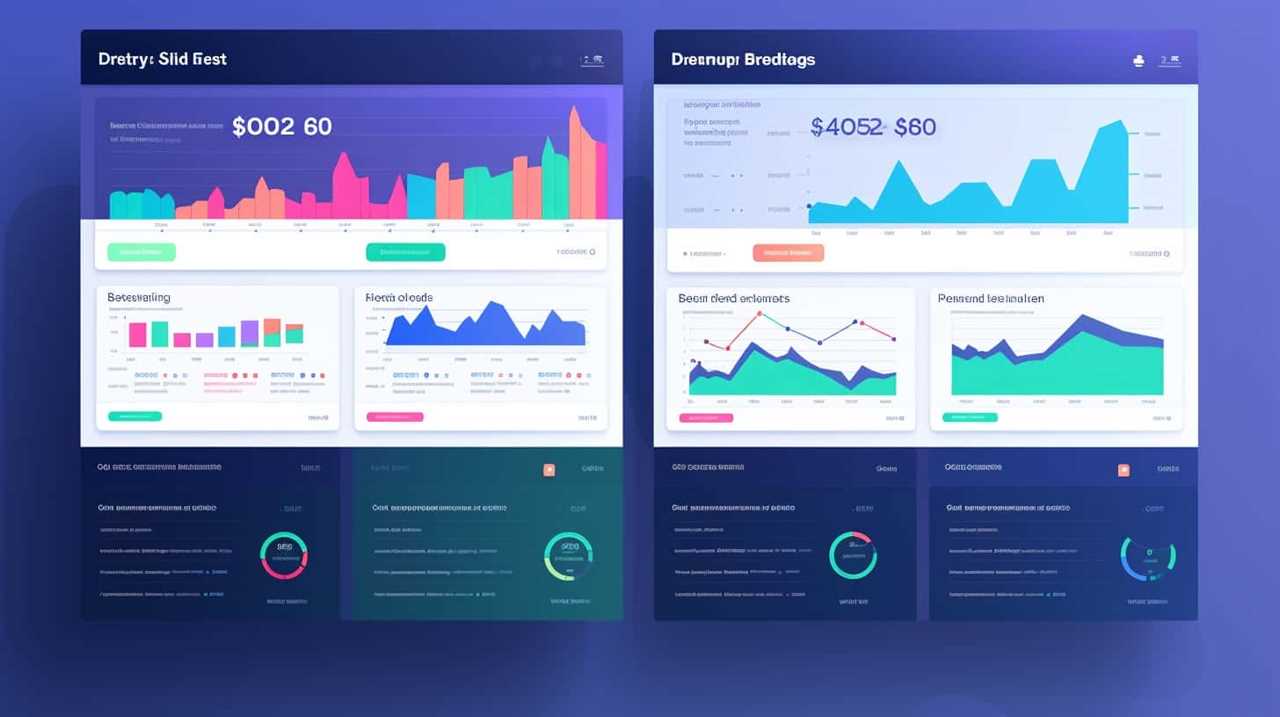Keyword Research
Local Citation Building: 11 Practices That Drive SEO Success

On our path to becoming proficient in SEO, we have discovered the importance of creating local citations. By following these 11 tactics, we can elevate the performance of our website to new heights.
From claiming and optimizing our Google My Business listing to harnessing the strength of online reviews, this article will guide us through the essential steps.
With consistency, quality backlinks, and strategic content marketing, we can dominate the local search results and attract more customers.
Let’s dive in and take our SEO game to the next level.

Key Takeaways
- Local citation building is crucial for SEO success.
- Providing accurate and consistent NAP information across online platforms is essential for instilling trust in potential customers and search engines.
- Online reviews greatly influence a business’s reputation and SEO rankings, so it’s important to encourage customers to leave reviews and respond promptly and professionally to both positive and negative feedback.
- Implementing schema markup and structured data can improve local search rankings and attract more relevant traffic to the website.
Claiming and Optimizing Your Google My Business Listing
First, we need to claim and optimize our Google My Business listing to maximize our SEO success. Google My Business optimization is crucial for improving our local search rankings.
By claiming our listing, we ensure that our business information is accurate and up-to-date. It also allows us to control how our business appears on Google Maps and in search results.
Optimizing our listing involves adding relevant keywords, high-quality photos, and a compelling business description. We should also encourage customers to leave reviews, as positive reviews can boost our visibility and credibility.
Regularly updating our listing with new posts, offers, and events will help us stay engaged with our audience and improve our search ranking.

Consistency Is Key: NAP (Name, Address, Phone Number) Accuracy
To ensure our Google My Business listing is fully optimized, it’s essential to maintain consistency in the accuracy of our NAP (Name, Address, Phone Number) information. NAP consistency refers to the uniformity of our business details across all online platforms, including local business directories.
Here are three reasons why NAP consistency is crucial for SEO success:
- Trustworthiness: When our NAP information is consistent across different directories, it instills trust in potential customers and search engines. Inconsistencies can lead to confusion and mistrust.
- Local SEO: Search engines rely on NAP consistency to determine the relevance and legitimacy of a business in a specific geographic area. Accurate and consistent NAP information helps boost local search rankings.
- Citations: Local business directories play a significant role in building citations for our business. Consistent NAP details across these directories enhance our online visibility and credibility.
Maintaining NAP consistency not only ensures the accuracy of our business information but also improves our SEO efforts, ultimately driving more traffic and customers to our business.
Building Quality Backlinks From Local Directories
Maintaining NAP consistency plays a crucial role in building quality backlinks from local directories. When it comes to local citation building, one important strategy is to submit your business information to local directories. These directories serve as online databases of local businesses, allowing potential customers to find you easily. However, not all directories are created equal. It is essential to choose high-quality directories that have a strong online presence and are relevant to your industry. Conducting a local citation audit can help you identify the most authoritative directories for your business. Once you have identified these directories, you can begin the process of local directory submission. This involves providing accurate and consistent NAP information, including your business name, address, and phone number. By building quality backlinks from reputable local directories, you can improve your website’s visibility and boost your SEO efforts.

| Directory | Domain Authority |
|---|---|
| Yelp | 94 |
| 100 | |
| YellowPages | 91 |
Leveraging Online Reviews for Higher Rankings
Online reviews have a significant impact on SEO and can greatly influence a business’s reputation. To leverage online reviews for higher rankings, it’s important to develop reputation management strategies that encourage customers to leave positive reviews.
Review Impact on SEO
Leveraging online reviews for higher rankings is a key aspect of driving SEO success through local citation building. Reviews have a significant impact on a business’s online reputation and can greatly influence search engine rankings.
Here are three reasons why online reviews are crucial for SEO:
- Trust and credibility: Positive reviews build trust with potential customers, signaling to search engines that your business is reputable and reliable.
- Increased visibility: Reviews can improve your business’s visibility in search engine results, as search engines often prioritize businesses with higher review ratings.
- User-generated content: Online reviews provide valuable user-generated content, which search engines love. This content helps to optimize your business’s online presence and improve organic search rankings.
Reputation Management Strategies
To effectively manage our business’s reputation and boost our SEO rankings, we must prioritize the utilization of online reviews. Online reputation plays a crucial role in attracting potential customers and building trust. Positive customer feedback not only helps in establishing credibility but also improves search engine rankings. By actively managing our online reputation, we can leverage the power of customer reviews to enhance our SEO strategy.

One effective strategy is to encourage customers to leave reviews on reputable platforms such as Google My Business, Yelp, or industry-specific review sites. These reviews act as social proof, influencing other potential customers to choose our business. Additionally, responding promptly and professionally to both positive and negative reviews shows that we value customer feedback and are committed to providing excellent service. This engagement not only improves customer satisfaction but also signals to search engines that our business is active and trustworthy.
To illustrate the impact of online reviews on SEO rankings, consider the following table:
| Business A | Business B |
|---|---|
| 50 reviews | 10 reviews |
| Average rating: 4.5 | Average rating: 3.5 |
| Higher search visibility | Lower search visibility |
| More website traffic | Less website traffic |
As shown in the table, Business A, with a higher number of positive reviews and a higher average rating, enjoys better search visibility and more website traffic compared to Business B. This highlights the importance of actively managing our online reputation to drive SEO success.
Harnessing the Power of Social Media for Local SEO
Social media engagement is a powerful tool for boosting local SEO.

By actively participating and interacting with users on platforms like Facebook, Twitter, and Instagram, businesses can increase their visibility and reach a wider, targeted audience.
The benefits of social media for local SEO are numerous, including increased website traffic, higher search engine rankings, and improved brand awareness.
Social Media Engagement
We can maximize our local SEO efforts by actively engaging with social media platforms. Social media engagement plays a crucial role in driving SEO success for local businesses. Here are three key practices to consider:
- Utilize social media advertising: By investing in targeted ads on platforms like Facebook and Instagram, you can reach a wider audience and increase brand visibility within your local community.
- Leverage social media analytics: Analyzing data from platforms like Twitter and LinkedIn can provide valuable insights into your audience’s preferences, allowing you to tailor your content and messaging to better resonate with them.
- Encourage user-generated content: Encouraging customers to share their experiences and reviews on social media can boost your online presence and credibility, leading to higher search engine rankings.
Local SEO Benefits
By leveraging the power of social media, local businesses can experience significant benefits in their SEO efforts.

Social media platforms offer a unique opportunity to connect with a local audience, drive engagement, and ultimately improve local SEO rankings.
One of the key benefits of utilizing social media for local SEO is the ability to build brand awareness and visibility in the local community.
By consistently sharing relevant content, engaging with followers, and promoting local events or offers, businesses can increase their online presence and attract more local customers.
Additionally, social media provides an avenue for businesses to generate backlinks and citations, which are important factors in local SEO rankings.

Targeted Audience Reach
Our local business’s targeted audience reach significantly benefits from harnessing the power of social media for local SEO. By utilizing social media platforms, we can effectively connect with our desired audience and drive traffic to our website.
Here are three ways social media helps us reach our target audience:
- Increased visibility: Social media allows us to increase our online presence and visibility, ensuring that our business is easily found by potential customers.
- Engagement and interaction: Through social media, we can engage with our audience, build relationships, and establish trust. This interaction helps us understand our customers’ needs and preferences better.
- Targeted advertising: Social media platforms provide advanced targeting options, allowing us to reach our specific audience based on demographics, interests, and behaviors. This targeted approach ensures that our messages reach the right people at the right time.
Creating Location-Specific Landing Pages
One effective strategy for improving local SEO is to create landing pages that are specific to each location. Optimizing landing pages for location-based targeting can significantly boost search engine rankings and increase visibility in local search results. By tailoring content to the specific needs and interests of users in each location, businesses can enhance their online presence and attract more relevant traffic.
When creating location-specific landing pages, there are several key factors to consider. The table below highlights five essential practices that can help optimize these pages for local SEO success:

| Practice | Description |
|---|---|
| Keyword Optimization | Incorporate location-specific keywords throughout the landing page |
| Unique Content | Create original and valuable content that addresses local needs |
| Clear NAP Information | Include the business name, address, and phone number prominently |
| Local Reviews and Testimonials | Showcase positive reviews and testimonials from local customers |
| Geotagging and Schema Markup | Implement geotagging and schema markup to provide location information |
Utilizing Schema Markup to Enhance Local Search Visibility
When it comes to boosting local search visibility, utilizing schema markup is a crucial practice.
Schema markup allows search engines to understand the context of your website’s content, making it easier for them to display relevant information to users.
By implementing schema markup for local SEO, you can provide detailed information about your business, such as its location, contact details, and operating hours.
This can significantly enhance your local search visibility and drive more targeted traffic to your website.

Schema for Local SEO
Utilizing schema markup is an effective way to enhance local search visibility. By implementing schema markup on your website, you can provide search engines with structured data about your business, making it easier for them to understand and display relevant information to users.
Here are three key benefits of using schema markup for local SEO:
- Improved search engine visibility: Schema markup helps search engines like Google understand your website’s content better, increasing the chances of appearing in relevant local search results.
- Enhanced user experience: Schema markup allows you to provide additional details about your business, such as opening hours, customer reviews, and contact information, directly in the search results. This makes it easier for potential customers to find and engage with your business.
- Increased click-through rates: With schema markup, your search results may include eye-catching elements like star ratings, images, and pricing information. These rich snippets can attract attention and entice users to click on your listing over competitors.
Boosting Local Search Visibility
To continue improving local search visibility, we can enhance the use of schema markup to provide structured data about our business and make it easier for search engines to understand and display relevant information to users.
Schema markup is a code that we can add to our website to provide additional context about our business, such as our address, phone number, business hours, and customer reviews.

By using schema markup, we can help search engines like Google better understand our business and its location, which can improve our local search rankings. This is especially important for geotargeted advertising, as it allows us to reach potential customers in specific locations.
Schema markup is one of the key local search ranking factors, so by utilizing it, we can boost our local search visibility and attract more relevant traffic to our website.
Engaging in Local Content Marketing
We actively engage in local content marketing to drive SEO success. Local content creation and promotion are essential strategies for boosting visibility in local search results. Here are three key practices we follow:
- Identifying local target keywords: We conduct thorough research to identify keywords that are relevant to our local audience. By using these keywords strategically in our content, we increase the likelihood of our website appearing in local search results.
- Creating valuable and informative local content: We focus on creating high-quality content that’s specifically tailored to our local audience. This includes blog posts, articles, videos, and infographics that provide valuable information and address the needs and interests of our target market.
- Promoting local content through various channels: We actively promote our local content through social media, email marketing, and partnerships with local influencers and businesses. By leveraging these channels, we increase the visibility and reach of our content, driving more traffic to our website and improving our overall SEO performance.
By engaging in local content marketing, we’re able to establish ourselves as a trusted authority in our local community and improve our search engine rankings.

Now, let’s explore another important aspect of local SEO: implementing structured data for better local search results.
Implementing Structured Data for Better Local Search Results
To improve our local search results, we implement structured data to provide more relevant information to search engines and users alike. Structured data implementation involves using specific tags and markup to organize and highlight important information on a website. This makes it easier for search engines to understand the content and context of a webpage, resulting in better visibility in local search results. By implementing structured data, businesses can enhance their online presence and increase the chances of appearing in relevant local search queries. Here is a table showcasing the benefits of implementing structured data for local search results improvement:
| Benefits of Implementing Structured Data |
|---|
| Improved visibility in search results |
| Enhanced user experience |
| Higher click-through rates |
Implementing structured data is a crucial step for businesses looking to optimize their local search performance and provide more accurate and relevant information to their target audience.
Optimizing Your Website for Mobile Users
Optimizing our website for mobile users is essential for driving SEO success and improving the overall user experience. With the increasing use of smartphones and tablets, it’s crucial to ensure that our website is mobile-friendly.

Here are three key steps to optimize our website for mobile users:
- Improving website speed: Mobile users expect fast loading times, and a slow website can lead to high bounce rates. By optimizing images, minifying CSS and JavaScript files, and leveraging browser caching, we can enhance our website’s speed on mobile devices.
- Optimizing website design: Mobile users have limited screen space, so it’s important to have a responsive design that adapts to different screen sizes. This includes using legible fonts, clear navigation menus, and properly sized buttons for easy navigation.
- Ensuring mobile compatibility: Testing our website on various mobile devices and platforms can help us identify any compatibility issues. This includes checking for responsive design, proper rendering of content, and functional forms and buttons.
Monitoring and Tracking Your Local SEO Efforts
When it comes to monitoring and tracking our local SEO efforts, it is crucial to implement effective strategies for evaluating our progress and making necessary adjustments. Tracking local SEO progress and measuring local SEO success allows us to understand the impact of our efforts and optimize our strategies for better results. By regularly monitoring our local SEO performance, we can identify areas of improvement, identify trends, and make data-driven decisions.
To help you keep track of your local SEO efforts, here is a simple table outlining key metrics and tools you can use:
| Metric | Tool |
|---|---|
| Rankings | Google Search Console |
| Organic Traffic | Google Analytics |
| Local Listings | Google My Business |
| Online Reviews | Review Monitoring Tools |
Frequently Asked Questions
How Do I Claim and Optimize My Google My Business Listing?
To claim and optimize our Google My Business listing, we need to follow a few key steps. First, we should verify our business information and add relevant details. Then, we can optimize our GMB profile by adding photos, responding to reviews, and regularly updating our listing.

Why Is Consistency in NAP (Name, Address, Phone Number) Accuracy Important for Local Seo?
Consistency in NAP accuracy is crucial for local SEO. It ensures that our business information is accurate and uniform across various online platforms, improving our search rankings and attracting more local customers.
How Can I Build Quality Backlinks From Local Directories?
To build quality backlinks from local directories, we can utilize various local citation opportunities. By following best practices for local directories, we can increase our website’s visibility and improve our SEO success.
What Is the Significance of Leveraging Online Reviews for Higher Rankings in Local Seo?
Leveraging online reviews is essential for higher rankings in local SEO. Positive customer feedback and a strong online reputation establish trust and credibility, leading to improved visibility and increased organic traffic.
How Can I Harness the Power of Social Media for Local Seo?
To harness the power of social media for local SEO, we need to implement effective social media strategies. By engaging with our local audience, sharing valuable content, and building relationships, we can drive significant local SEO growth.

Conclusion
In conclusion, implementing these 11 practices for local citation building can significantly drive SEO success for your business.
Consistency in NAP accuracy, building quality backlinks, leveraging online reviews, and engaging in local content marketing are just a few of the key strategies to focus on.
Like a well-oiled machine, these practices work together to optimize your online presence and attract more local customers, propelling your business to new heights in the digital landscape.
Keyword Research
How to Do Keyword Research on Semrush

Are you prepared to become an expert in keyword research using Semrush? We’ve got all the resources you need!
In this article, we’ll guide you through the process of setting up your Semrush account.
We’ll also help you understand its powerful keyword research features and how to conduct initial research.
Additionally, we’ll show you how to analyze keyword metrics and competition, refine your keyword list, and implement your findings.

Get ready to take your SEO strategy to the next level with Semrush!
Key Takeaways
- Sign up for a Semrush account and set up your website details
- Connect your Google Analytics and Google Search Console accounts to Semrush
- Utilize Semrush’s keyword research tools for content optimization and focus on long tail keywords
- Analyze competitors’ keyword strategies to refine your own approach and gain a competitive edge
Setting up Your Semrush Account
First, we’ll guide you through the process of setting up our Semrush account.
When exploring Semrush’s account management features, it’s crucial to understand how to maximize the benefits of its keyword tracking capabilities.
Setting up your Semrush account is a straightforward process. After signing up, you’ll be prompted to enter your website’s details and connect your Google Analytics and Google Search Console accounts. This allows Semrush to gather data about your website’s performance and keywords.

Once you’ve completed these steps, you can start exploring Semrush’s account management features, such as tracking your organic search positions, monitoring your competitors, and analyzing your website’s overall visibility.
Understanding Semrush’s account management features will lay the foundation for effectively utilizing its keyword tracking capabilities in the subsequent section about ‘Understanding Semrush’s Keyword Research Features’.
Understanding Semrush’s Keyword Research Features
Continuing our exploration of Semrush’s account management features, let’s delve into understanding Semrush’s keyword research capabilities.
When it comes to optimizing your content for search engines, Semrush’s keyword research tools are invaluable. Here are three key features to help you make the most of your keyword research:

- Content optimization: Semrush’s keyword research tools provide insights into the keywords your target audience is searching for. This allows you to optimize your content to align with their search intent and increase your chances of ranking higher in search engine results pages.
- Long tail keywords: Semrush’s keyword research emphasizes the importance of long tail keywords. These longer and more specific phrases have lower competition and higher conversion rates, making them a crucial element in your SEO strategy.
- Competitor analysis: Semrush’s keyword research allows you to analyze your competitors’ keyword strategies. By identifying the keywords they’re targeting, you can gain valuable insights and refine your own keyword strategy to outperform them.
Understanding and leveraging Semrush’s keyword research tools will give you a competitive edge in optimizing your content and driving organic traffic to your website.
Conducting Initial Keyword Research
Now, let’s delve into how we can conduct our initial keyword research on Semrush.
When it comes to finding relevant keywords, there are a few effective strategies we can employ. One of them is focusing on long tail keywords, which are more specific and have lower competition. By targeting these keywords, we can attract highly targeted traffic to our website.
Additionally, utilizing competitor analysis for keyword research can provide valuable insights into the keywords that are driving traffic to our competitors’ websites. This information can help us identify untapped opportunities and optimize our own content.

By employing these strategies, we can lay the foundation for a successful keyword research campaign.
In the next section, we’ll discuss how to analyze keyword metrics and competition to further refine our keyword selection and strategy.
Analyzing Keyword Metrics and Competition
To further refine our keyword selection and strategy, we can analyze keyword metrics and competition on Semrush. This step is crucial in choosing the right keywords for your SEO strategy.
By analyzing keyword difficulty and search volume, we can better target our audience and increase our chances of ranking higher in search engine results.

Here are three key factors to consider when analyzing keyword metrics and competition:
- Keyword Difficulty: This metric helps us understand how challenging it will be to rank for a specific keyword. A higher difficulty score indicates stronger competition, while a lower score suggests a better chance of ranking.
- Search Volume: This metric shows how many people are searching for a particular keyword. It helps us identify popular keywords with a higher potential for driving traffic to our website.
- Competitor Analysis: By examining the competition for our chosen keywords, we can gain insights into their strategies, strengths, and weaknesses. This information allows us to refine our own approach and find gaps in the market.
Analyzing these metrics and competition will help us make informed decisions about the keywords to target, ultimately improving our SEO strategy.
Refining Your Keyword List and Implementing Your Findings
After analyzing keyword metrics and competition on Semrush, we refine our keyword list and implement our findings.
Refining our keyword list involves removing irrelevant keywords and focusing on those with high potential for driving organic traffic. We also identify long-tail keywords, which have lower competition and higher conversion rates.

Implementing keyword optimization strategies is crucial for maximizing organic traffic growth. This includes incorporating targeted keywords into website content, meta tags, and URLs. It’s also important to optimize on-page elements such as headings, image alt tags, and internal links.
Additionally, monitoring keyword rankings and making necessary adjustments is essential for staying ahead of the competition.
Frequently Asked Questions
Can I Use Semrush for Keyword Research on Platforms Other Than Google?
Yes, you can use Semrush for keyword research on social media platforms and e-commerce platforms. It provides valuable insights and data to help you optimize your keyword strategy across different platforms.
How Often Should I Update My Keyword List?
We update our keyword list regularly to ensure we stay up to date with search trends and maximize the benefits of our research. The frequency of updating the keyword list depends on the dynamic nature of our industry.

Can I Track the Performance of My Keywords Over Time?
Yes, we can track the performance of our keywords over time. It is important to track keyword rankings to understand how our SEO efforts are impacting search visibility and to make informed optimization decisions.
Are There Any Alternative Tools to Semrush for Keyword Research?
There are several alternative keyword research tools available that can be used for keyword research. It is important to compare these tools and consider their pros and cons before making a decision.
How Can I Find Long-Tail Keywords Using Semrush?
Finding long-tail keywords on Semrush helps us unlock the benefits of using them in SEO. By optimizing our content with these specific keywords, we can attract targeted traffic and improve our search rankings. Here are some tips for optimizing content with long-tail keywords.
Conclusion
In conclusion, conducting keyword research on Semrush is crucial for optimizing your website’s visibility and driving organic traffic.

By setting up your account, exploring the platform’s features, and analyzing keyword metrics and competition, you can refine your keyword list and implement effective strategies.
Remember, success lies in finding the right keywords that resonate with your target audience and align with your business goals.
So, start your research journey on Semrush and unlock the potential for online success.
Keyword Research
How to Do Keyword Research With Google

In our pursuit of digital dominance, grasping the significance of keywords is crucial. These concise yet powerful words are essential for online achievement. So, what’s the optimal way to take advantage of this opportunity?
Fear not, for we have Google by our side. With its Keyword Planner, we can uncover valuable keyword ideas. And with Google Trends, we can analyze competition.
Together, let’s embark on a journey of keyword research using the tools at our disposal.
Key Takeaways
- Keyword research helps identify relevant and high-performing keywords for a website.
- Long tail keywords target specific niche markets and attract a focused audience.
- Google Keyword Planner provides comprehensive keyword suggestions based on search volume, competition, and relevance.
- Google Trends provides insights on search volume and keyword trends over time.
Understanding the Importance of Keyword Research
Keyword research is an essential step in our digital marketing strategy as it helps us identify the most relevant and high-performing keywords for our website.

One of the benefits of long tail keywords in keyword research is their ability to target specific niche markets. By including more specific and descriptive phrases in our content, we can attract a more focused audience that’s more likely to convert.
Additionally, long tail keywords often have less competition, making it easier for our website to rank higher in search engine results.
Another crucial aspect of keyword research is understanding keyword intent. By analyzing the intent behind a user’s search query, we can optimize our website and content to align with their needs and preferences.
This not only improves our search engine rankings but also increases the chances of attracting qualified traffic to our website.

Using Google Keyword Planner for Keyword Ideas
We frequently rely on Google Keyword Planner to generate a multitude of keyword ideas for our digital marketing strategy. Here’s why it’s our go-to tool:
- Comprehensive keyword suggestions:
Google Keyword Planner provides a vast array of keyword ideas based on search volume, competition, and relevance. This allows us to explore a wide range of options and identify the most effective keywords for our campaigns. - Comparison with other tools:
One of the key advantages of Google Keyword Planner is its ability to compare keyword data with other tools. This feature helps us gain valuable insights and make informed decisions when selecting the right keywords for our targeting. - Long tail keyword targeting:
Google Keyword Planner also helps us identify long tail keywords, which are specific and highly targeted phrases. Using long tail keywords allows us to reach a more niche audience, resulting in better conversion rates and higher ROI.
Analyzing Keyword Competition With Google Trends
To assess keyword competition, we turn to Google Trends for valuable insights and data-driven analysis. Google Trends allows us to analyze search volume and identify keyword trends over time.
By entering a keyword or a group of keywords into Google Trends, we can see how their popularity has changed over the years and even compare different keywords to see which one is more popular. This information helps us understand the level of competition for a particular keyword and make informed decisions in our keyword research.
Utilizing Google Search Console for Keyword Insights
By leveraging the insights provided by Google Trends, we can now delve into the benefits of utilizing Google Search Console for valuable keyword insights.

Here are three key reasons why Google Search Console is an essential tool for advanced keyword research techniques:
- Performance Data: Google Search Console provides detailed performance data for your website, including the keywords that are driving organic traffic. This data allows you to identify high-performing keywords and optimize your content accordingly.
- Search Queries: With Google Search Console, you can see the exact search queries that users are entering to find your website. This information helps you understand user intent and refine your keyword targeting.
- Click-Through Rate (CTR) Analysis: Google Search Console provides CTR data for your website’s organic search results. By analyzing your CTR for different keywords, you can identify opportunities to improve your meta tags and increase your organic click-through rate.
Best Practices for Conducting Keyword Research With Google
Now let’s explore the best practices for conducting keyword research with Google and how it can enhance our understanding of user intent and drive organic traffic to our website.
When it comes to keyword research strategies for small businesses, it’s important to start by identifying relevant keywords that align with your target audience and business goals. Use tools like Google Keyword Planner or other keyword research tools to find high-volume, low-competition keywords.
Once you have a list of keywords, incorporate them strategically into your website content. Tips for optimizing website content with targeted keywords include placing them in the page title, meta description, headings, and throughout the body of the content. Remember to write naturally and provide valuable information to the users.

Regularly analyze and update your keyword strategy to stay ahead of the competition and drive more organic traffic to your website.
Frequently Asked Questions
How Can I Use Keyword Research to Improve My Website’s Search Engine Rankings?
To improve our website’s search engine rankings, we can use keyword research to optimize our content and implement the findings for on-page SEO improvements. It’s crucial for mastering search engine optimization.
Are There Any Alternative Tools or Platforms I Can Use for Keyword Research Besides Google Keyword Planner?
There are several alternative keyword research tools and platforms available, which can provide additional benefits when used alongside Google Keyword Planner. Using multiple tools allows for comprehensive and thorough keyword research.
Can I Use Google Trends to Analyze the Competition for Long-Tail Keywords?
Using Google Trends for competitor analysis is a great way to find profitable long-tail keywords. It allows us to see the popularity and seasonality of keywords, helping us make data-driven decisions for our keyword research.

How Can I Leverage the Data From Google Search Console to Enhance My Keyword Research Strategy?
To optimize our keyword research strategy, we can leverage the data from Google Search Console. It provides valuable insights into search queries, impressions, and CTR, helping us identify high-performing keywords and improve our content.
Are There Any Common Mistakes to Avoid When Conducting Keyword Research Using Google?
When it comes to keyword research, we’ve all made mistakes. But fear not! We’ll show you how to avoid common pitfalls and master the art of keyword research. Let’s dive in!
Conclusion
In the vast forest of online content, keyword research acts as our compass, guiding us to the hidden treasures of search engine visibility. Just as explorers rely on maps to navigate uncharted territories, we rely on Google’s tools to uncover valuable keywords.
With the power of Google Keyword Planner, Google Trends, and Google Search Console, we can analyze competition, gain insights, and optimize our content for success.

So, let’s embark on this digital quest armed with knowledge and make our mark in the online realm.
Keyword Research
How to Do Keyword Research

The advantages of incorporating long-tail keywords into content marketing approaches.
Are you ready to unlock the secrets of successful keyword research? We’ve got you covered.
In this article, we’ll guide you through the process step by step, helping you uncover the most valuable keywords for your target audience.
From brainstorming ideas to analyzing competition, we’ll show you how to refine your keyword list for maximum impact.

Get ready to take your SEO strategy to the next level and dominate the search engine rankings.
Let’s dive in and master keyword research together.
Key Takeaways
- Keyword research helps understand the language and phrases used by the target audience.
- Focusing on long tail keywords attracts more qualified traffic.
- Local SEO allows targeting customers in specific geographical areas.
- Keyword research helps identify popular search terms.
Understanding the Importance of Keyword Research
Keyword research is crucial for our online success. It helps us understand the language and phrases our target audience uses when searching for information, products, or services online. Two important aspects of keyword research are the role of long tail keywords and the impact of local SEO.
Long tail keywords play a significant role in keyword research. These are longer, more specific phrases that are less competitive but highly targeted. By focusing on long tail keywords, we can attract more qualified traffic to our website, increasing the chances of conversion.

Local SEO also has a profound impact on keyword research. Optimizing our website for local search helps us target customers in specific geographical areas. It allows us to tailor our keywords to include location-specific terms, making it easier for local customers to find us.
Understanding the importance of long tail keywords and the impact of local SEO is essential for effective keyword research and ultimately, our online success.
Defining Your Target Audience and Goals
To effectively conduct keyword research, we must first define our target audience and establish our goals. Understanding your audience’s search intent is crucial in identifying the keywords they’re likely to use when searching online. This will help us create content that aligns with their needs and interests. Additionally, setting realistic goals is essential to measure the success of our keyword research efforts.
Here are four steps to help us define our target audience and goals:

- Conduct market research to identify our target audience’s demographics, interests, and online behavior.
- Analyze competitor websites and social media platforms to understand what keywords they’re targeting.
- Use tools like Google Analytics and social media analytics to gain insights into our audience’s search queries and engagement patterns.
- Clearly define our goals, whether it’s increasing website traffic, generating leads, or improving search engine rankings.
Generating Keyword Ideas
Now that we’ve defined our target audience and established our goals, let’s dive into generating keyword ideas.
Brainstorming techniques are a great way to come up with a wide range of keywords that could potentially attract our target audience. A brainstorming session can involve listing related terms, thinking about different aspects of our product or service, and considering the pain points or needs of our audience.
Additionally, conducting niche keyword research can help us identify specific keywords that are relevant to our industry or market segment. By focusing on these niche keywords, we can narrow down our keyword list to be more targeted and effective.
In the next section, we’ll discuss how to analyze keyword competition and volume, which will further refine our keyword selection process.

Analyzing Keyword Competition and Volume
Now, let’s delve into how we analyze the competition and volume of keywords to further refine our keyword selection process.
To effectively analyze keyword competition and volume, we follow these steps:
- Analyzing keyword trends: We examine the search trends of specific keywords to understand their popularity over time. This helps us identify which keywords are currently in demand and can guide our content creation strategy.
- Identifying high-value keywords: We look for keywords with a high search volume and low competition. These keywords have the potential to drive significant traffic to our website and attract more potential customers.
- Competitor analysis: We analyze the keywords that our competitors are targeting. This gives us insights into their keyword strategy and helps us identify opportunities to outperform them in search engine rankings.
- Keyword difficulty assessment: We evaluate the difficulty of ranking for specific keywords by considering factors such as domain authority, backlink profile, and content quality of the top-ranking pages. This helps us prioritize our keyword targeting efforts.
Refining Your Keyword List for Maximum Impact
After analyzing keyword competition and volume, we can now focus on refining our keyword list for maximum impact. Keyword optimization techniques are essential to ensure that our website ranks higher in search engine results and attracts relevant traffic.
One effective strategy is to use long tail keywords effectively. These are longer and more specific phrases that target niche audiences and have lower competition. By incorporating long tail keywords into our content, we can attract more qualified leads and increase conversion rates.

Additionally, refining our keyword list allows us to prioritize the most relevant and high-performing keywords. This helps us create targeted and compelling content that resonates with our audience and improves our overall SEO strategy.
Frequently Asked Questions
How Can I Determine the Search Volume and Competition for Specific Keywords?
To determine search volume and competition for specific keywords, we use search volume determination and competition analysis. It helps us understand the popularity and competitiveness of keywords, allowing us to make informed decisions for our keyword research strategy.
Are There Any Tools Available to Help With Keyword Research?
There are various tools available to assist with keyword research. These tools can provide valuable insights into search volume and competition, allowing us to optimize our content effectively. Using the best practices for keyword research is crucial for success.
How Do I Identify Long-Tail Keywords and Why Are They Important?
Identifying long-tail keywords is crucial for effective SEO. They are specific, less competitive, and have a higher conversion rate. Incorporating long-tail keywords in content marketing strategies improves search visibility and drives targeted traffic to your website.

Can I Use Competitor Analysis to Improve My Keyword Research?
Yes, competitor analysis can greatly enhance our keyword research. By analyzing our competitors, we can uncover untapped keyword opportunities and leverage their keyword data to create strategic and engaging content.
What Is the Significance of Local Keyword Targeting and How Can I Incorporate It Into My Research?
Local keyword targeting is crucial for optimizing our website for local search. Incorporating local SEO in keyword research helps us reach a targeted audience and improve our visibility in specific geographic areas.
Conclusion
In conclusion, conducting effective keyword research is crucial for achieving maximum impact in your online presence.
By understanding the importance of keyword research and defining your target audience and goals, you can generate relevant keyword ideas.

Analyzing keyword competition and volume helps you refine your keyword list strategically.
Remember, the key to success lies in finding the right keywords that resonate with your audience and drive organic traffic to your website.
So, stay strategic and start your keyword journey today!
-

 Expert Content Authority2 weeks ago
Expert Content Authority2 weeks agoThe Pillar of SEO: Why Content Consistency Matters Most
-

 Learning Center2 weeks ago
Learning Center2 weeks agoUncover How To Use ChatGPT to Write Effective Ad Copy
-

 Learning Center2 weeks ago
Learning Center2 weeks agoAI in 2024: 10 Things We are NOT Looking Forward To
-

 Holistic SEO3 weeks ago
Holistic SEO3 weeks agoHolistic Local SEO Tactics for Small Businesses
-

 Learning Center2 weeks ago
Learning Center2 weeks agoOptimize Your Digital Experience with Akamai CDN
-

 Learning Center3 weeks ago
Learning Center3 weeks agoExperience How GPT-4 Turbo Beats Claude 2: A Review
-

 Holistic SEO2 weeks ago
Holistic SEO2 weeks agoMaximize Engagement with YouTube Videos End Screens
-

 Learning Center3 weeks ago
Learning Center3 weeks agoMastering SEO through the Google SGE Lens: A Comprehensive Guide














